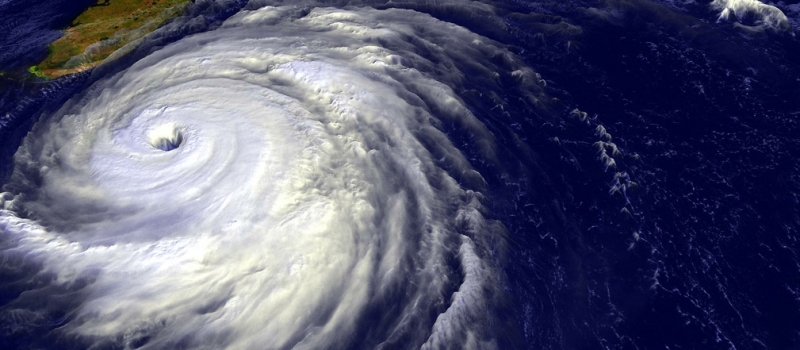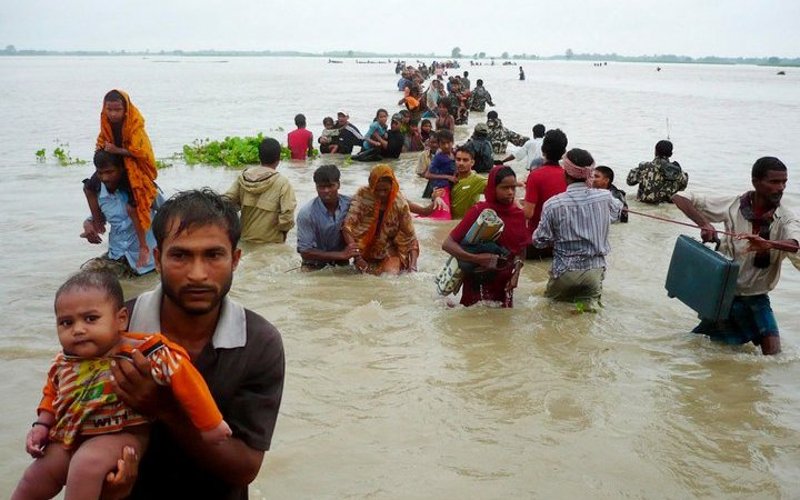
Although we hear about it almost daily, how many of us really understand the nature of climate and how it functions?
Because it effects us all and the choices that we make effect it, then we all need to have a far greater understanding of what regulates climate and how it relates to our day-to-day lives. This would be much more productive than trying to adapt to the increasingly extreme weather conditions or waiting for governments to eventually make decisions that consider the long-term good of the many. An important point that is often missed out of climate change discussions is the fact that the water cycle and climate cycle are not two separate systems.
“The water cycle plays a key role in the maintenance of the climate system as a moderator of the Earth’s energy cycle. It is through the water cycle that incoming solar energy is redistributed through the Earth system via the atmosphere and oceans.”
This may seem simple but unless climate and the water cycle are put in their right context side by side, efforts to address either water or climate problems will be seriously undermined.
The global water cycle and climate change need to be addressed together, recognising that anything that impacts upon the water cycle, also impacts upon climate and vice versa. For example – mass deforestation sets off a chain of reactions that destabilise the water cycle, which then have knock on effects upon climate systems. These effects can range from cyclones and hurricanes, to flooding and drought. Generally these alarming repercussions are looked at in isolation but it is only really by looking at the entire water cycle and climate system collectively that cohesive solutions can be applied.
“While attention thus far has focused on the impact of climate changes on the water cycle, the altered paradigm recommends concentrating attention on the impact of changes in the water cycle on climate changes.” Download: M. Kravcík et al. Water for the Recovery of the Climate – A New Water Paradigm, 2007.pdf
Up until recently the concept of climate included the global water cycle in its three phases of liquid, solid and gas. It was clearly understood that it was changes in this cycle, which were altering climate and the US Global Change Research Program, involving NASA was initiated in the 1990’s to gain greater understanding of the processes involved. In September 1999, as an essential element of this multi billion-dollar program, a water cycle study was initiated. This was with the aim of determining whether human induced changes were affecting the intensification of the water cycle and how this affected climate. One of their conclusions was that changes in land cover and land use can have significant, even drastic, impacts on the water cycle at local and regional scales. Seeing that massive deforestation programs have been happening globally, these impacts are also at international scales.
“The hydrological cycle is the life-blood of many of the organisms that inhabit the Earth. At the same time it is, in many ways, the engine of the climate system. Human activities are now influencing the cycle at the global scale.”
Download: W. Steffen et al. , ‘Global Change and the Earth System A Planet Under Pressure’, 2004.Pdf
More attention needs to be given to the significant effects that water vapour greenhouse gas has in the atmosphere.
“Water vapour in the atmosphere acts as a powerful greenhouse gas and nearly doubles the effects of greenhouse warming caused by carbon dioxide, methane and all similar gases.” Download: Moustaffa T Chahine, ‘The hydrological cycle and its influence on climate’, 1992.pdf
Increased quantities of greenhouse gases in the upper atmosphere are widely recognised to be a major cause of the amplification of climate change. However water vapour is not often mentioned. This seems to be a great oversight because water vapour is the most abundant greenhouse gas in the atmosphere. According to studies it accounts for approximately 60% of the greenhouse effect. Whereas Carbon Dioxide accounts for approximately 26%. Therefore as the global water cycle becomes destabilised and there are larger quantities of water vapour in the atmosphere, it has a direct feedback effect on climate.
“For many, the term ‘climate’ refers to long-term weather statistics. However, more broadly and more accurately, the definition of climate is a system consisting of the atmosphere, hydrosphere, lithosphere, and biosphere. Physical, chemical and biological processes are involved in interactions among the components of the climate system. Vegetation, soil moisture, and glaciers, for example, are as much a part of the climate system as are temperature and precipitation.” Download: Pielke. R. Sr, A broader view of the role of humans in the climate system, 2008.pdf
Because of the complex interconnectivity between the water cycle, climate, ecosystems and other Earth systems, we cannot look at something like climate change in isolation from the various environmental elements, which regulate climate. There is a sound, scientific basis for the need to preserve essential life supporting ecosystems. This subject was discussed in the Talanoa Dialogue and on the 12th December 2018 The Presidency of the COP 24 to the UNFCCC and COP 23 Presidency issued the Talanoa Call to Action, which calls for the urgent and rapid mobilization of all stakeholders to step up their efforts to meet the goals of the Paris Agreement on climate change.
“A world of clean air, climate-resilient food production; healthy lands, forests and oceans; an end to ecosystem degradation; and, sustainable lifestyles worldwide.” View Full: UNFCCC, ‘Call for Action’, Talanoa Dialogue, 2018.Pdf
“The climate system is a complex, interactive system consisting of the atmosphere, land surface, snow and ice, oceans and other bodies of water, and living things.” Download: IPPC. Historical Overview of Climate Change Science, 2001.pdf
For too long now the essential connectivity between the global hydrological cycle, climate and human induced climate change has been sidelined in international climate talks and water conferences. Instead the idea put forwards at the International Conference on Water and the Environment held in Dublin in 1992, where it was stated that: “Water has an economic value in all its competing uses and should be recognized as an economic good.”, became the favoured approach.
Trophic cascades give a clear and simple example of the connectivity that exists between biodiversity, ecosystems and Earth systems.
However reducing the status of water to that of an economic good does not serve the fundamental needs of the majority of humanity nor the other living species on Earth.
Although water is the foundations and bedrock upon which all economies rest, viewing water in this way has allowed it to fall into the category of ‘valuable, limited commodity. This is bringing about the mass privatization of freshwater. It is now being treated as a marketable good that can be sold at any price, water companies wish to place upon it. In the meantime safeguarding the global water cycle and implementing effective solutions, which include preserving the ecosystems, which maintain it and dealing with rebalancing the quantities of atmospheric water vapour greenhouse gas, are being ignored.
“The construction of dams on major rivers worldwide has affected flow regimes, and with them C and N fluxes and ecosystem dynamics. Changes in erosion and sedimentation alter channel and floodplain morphology, with important feedbacks to water, carbon, and nitrogen cycles. Further, sediment from erosion can have long-lasting influence on river hydrology (e.g., Meade 1982) Land use changes affect hydrological processes and these interact with carbon and nutrients in many significant ways.” View Full: National Science Foundation ‘A Plan for a New Science Initiative on the Global Water Cycle’, chapter 4, 2003

Because freshwater, as we know it, only exists as part of a three phase recycling process known as the hydrological cycle, then any group claiming ownership of it, should also be obliged to bear the responsibility of all it’s three phases. They would therefore be accountable for all damages brought about by its instability. This includes extreme weather events related to the intensification of the water cycle and the severe reduction in quantity of freshwater worldwide, linked with aquifer depletion and glacial melt.
“The hydrological cycle influences climate in a variety of ways. The exchanges of moisture and heat between the atmosphere and the Earth’s surface fundamentally affect the dynamics and thermodynamics of the climate system. In the forms of vapour, clouds, liquid, snow and ice, as well as during phase transitions, water plays opposing roles in heating and cooling the environment. Fifty per cent of surface cooling results from evaporation.” Download: Moustaffa T Chahine, ‘The hydrological cycle and its influence on climate’, 1992.pdf
Water privatisation is not a viable option when considering all the implications. It only distracts attention and resources away from re-stabilising the global water cycle.
“There is a well-established pattern of suppression and distortion of scientific findings by high-ranking Bush administration political appointees across numerous federal agencies. These actions have consequences for human health, public safety, and community well-being.” View Full: Union of Concerned Scientists, Scientific Integrity in Policy Making, 2004.Pdf
If we truly wish to leave our children, grandchildren and future generations a world in which they can live in some kind of peace and harmony, which accords in any way whatsoever with the ideas of sustainability and human rights, then addressing human induced climate change needs to include the rebalancing of the hydrological cycle.
“The restricted definition of ‘‘climate change’’ used by the Framework Convention on Climate Change (FCCC) has profoundly affected the science, politics, and policy processes associated with the international response to the climate issue. Specifically, the FCCC definition has contributed to the gridlock and ineffectiveness of the global response to the challenge of climate change. This paper argues that the consequences of misdefining ‘‘climate change’’ create a bias against adaptation policies and set the stage for the politicization of climate science.”
“The water cycle is now widely recognized as one of the dominant causes of uncertainty in climate change projections. Moreover, most major impacts of climate variability and climate change on human activity and natural ecosystems directly involve precipitation processes or water and energy cycles.”
